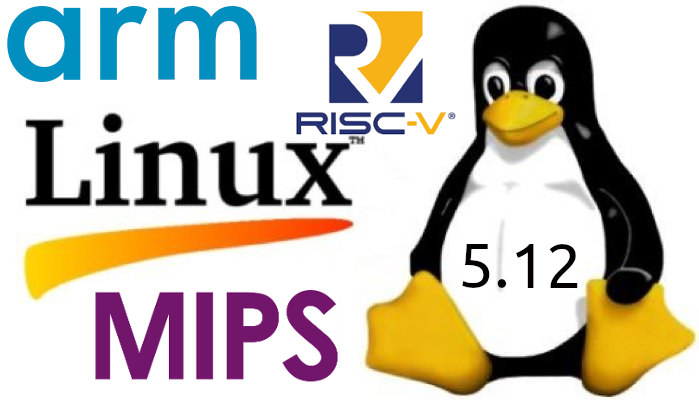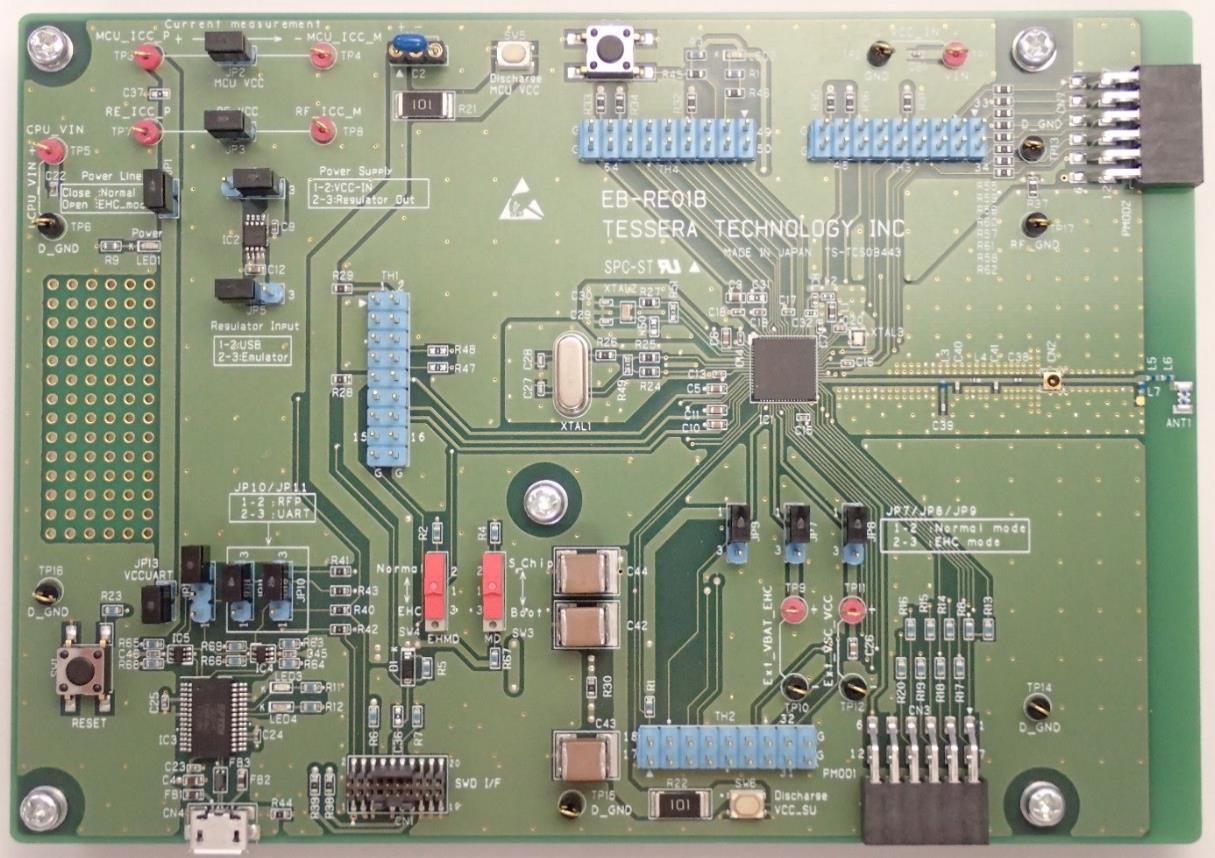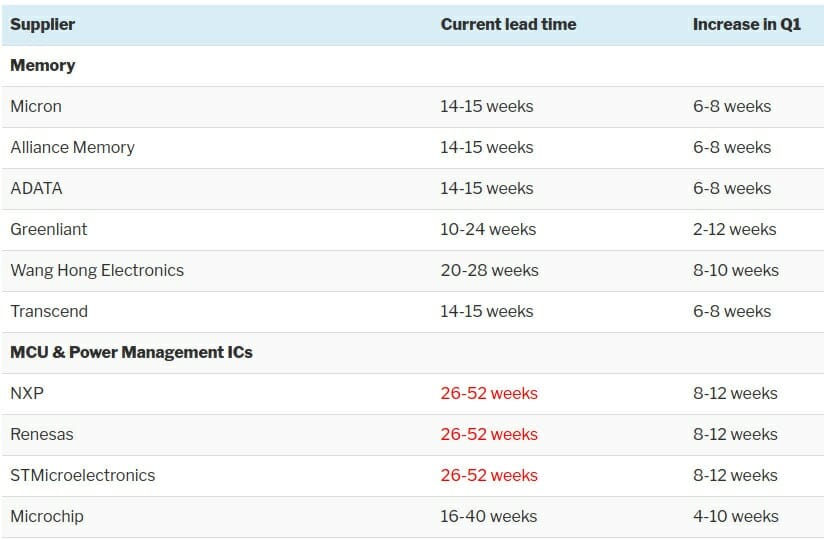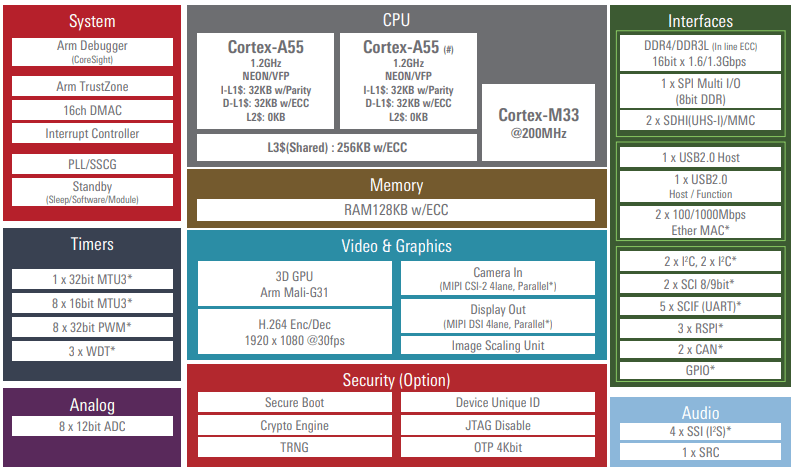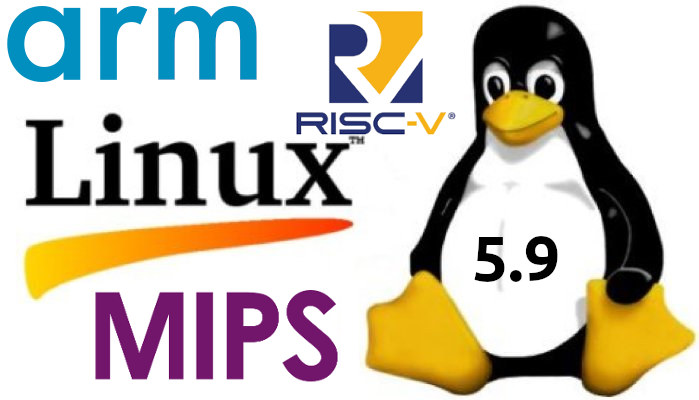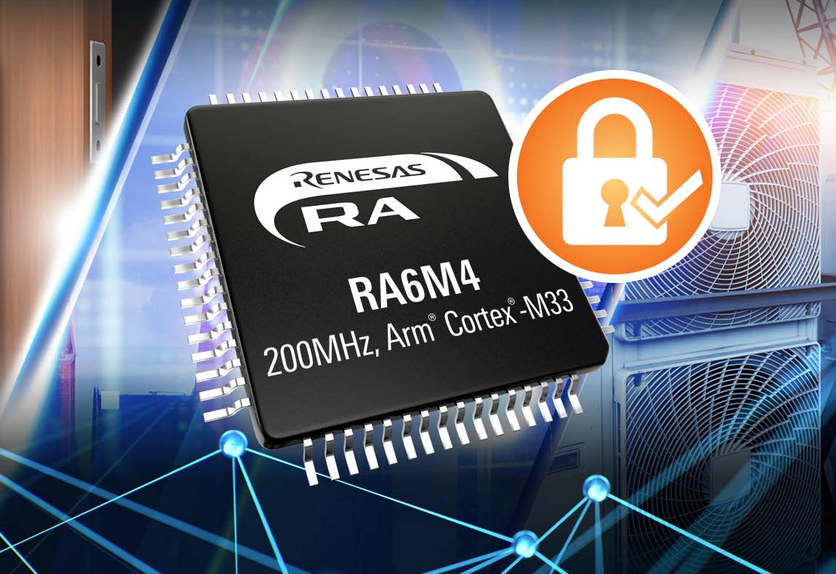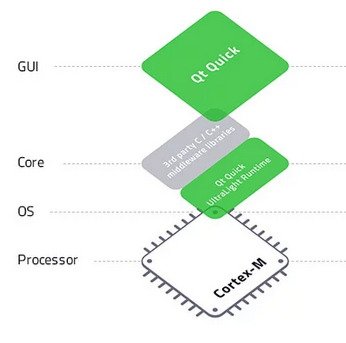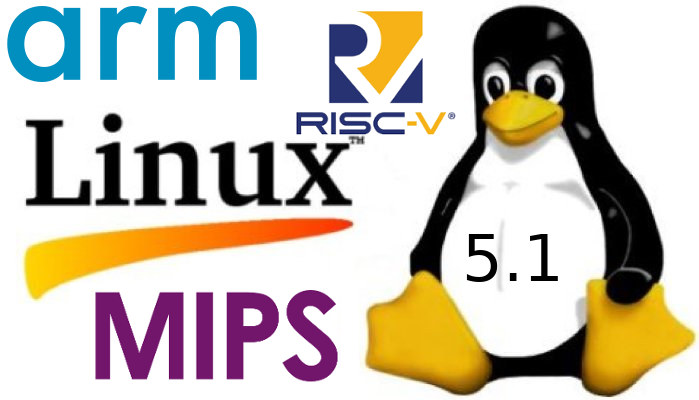Linux 5.12 release was expected last Sunday, but Linus Torvalds decided to release one more release candidate, namely Linux 5.12-RC8, to “make sure things are all settled down“, so the latest Linux kernel is now expected this weekend. Tihs should not yield any significant changes, so we can check what’s new in Linux 5.12, notably with regards to Arm, MIPS, and RISC-V architectures often used in SoC’s found in embedded systems. Around two months ago, the release of Linux 5.11 added support for Intel’s software guard extensions (SGX) and Platform Monitoring Technology (PMT), AMD “Van Gogh” and “Dimgrey cavefish” graphics processors, MIPI I3C host controller interfaces, and much more. Some interesting changes in Linux 5.12 include: Added support for ACRN hypervisor designed for IoT & embedded devices Added support for Playstation DualSense & Nintendo 64 game controllers, as well as Nintendo 64 data cartridges Dynamic thermal power management via a […]
Renesas RE01B Bluetooth 5.0 LE MCU harvests energy for battery maintenance-free IoT devices
Nobody likes to change or recharge batteries in their IoT nodes, so any new development related to energy harvesting or batteryless devices is welcomed. Renesas RE01B is a new Bluetooth 5.0 Low Energy (BLE) Arm Cortex-M0+ MCU that consumes at little as 35 µA/MHz during operation and 600 nA during standby making it suitable for battery maintenance-free IoT devices, or even batteryless IoT devices thanks to its energy harvesting controller. Renesas RE01B microcontroller’s features and specifications: CPU – Arm Cortex-M0+ core up to 64MHz GPU – 2D graphics accelerator Memory – 256KB SRAM Storage – 1.5MB flash Connectivity – 2.4 GHz radio with Bluetooth 5.0 Low Energy; up to 400m range (Long Range) and 2 Mbps data rate I/Os 8x PWM outputs 7x 14-bit A/D converters (ADC, Analog inputs) SCI (UART), I2C, SPI Timers 1x 32-bit Timer, 3x 16-bit Timer, 2x 8-bit Timer 2x Watchdog Timer, 1-second event timer, stopwatch […]
Semiconductors lead times in March 2021
As we previously mentioned previously there is a serious chip shortage that will lead to supply issues and higher prices for single board computers and other electronics products. A few days ago, Hardkernel had o increase the price for ODROID boards using DDR4 memory with increases of $3 to $4 for ODROID-N2+, ODROID-C4, and ODROID-HC4 boards. But besides price increase, some semiconductors will not be available at any price with extended periods as lead times of up to 52 weeks have been reported as shown in the table below, obtained from a trusted, anonymous source, which I have translated from Chinese. Every manufacturer is impacted, but items highlighted in red are severely impacted. Since include processors from Qualcomm, STMicroelectronics, and NXP, as well as Broadcom wireless chips which are found in nearly every SBC with WiFi or Bluetooth through Ampak modules. Here’s the source image in Chinese for reference. Jean-Luc […]
Renesas RZ/G2L MPUs Feature Cortex-A55 & Cortex-M33 Cores for AI Applications
Renesas Electronics Corporation announced RZ/G2L MPUs, allowing enhanced processing for an extensive variety of AI applications. The RZ/G2L group of 64-bit MPUs includes three new MPU models featuring Arm Cortex-A55, and an optional Cortex-M33 core. These are RZ/G2L, RZ/G2LC, and RZ/G2UL MPUs. The Cortex-A55 CPU core typically delivers approximately 20 percent improved processing performance compared with the previous Cortex-A53 core, and according to Renesas, is around six times faster in “essential processing for AI applications”. The company already has four mid to high-end design level MPUs including RZ/G2E, RZ/G2N, RZ/G2M, and RZ/G2H, with combinations of Cortex-A53 and Cortex-A57 cores. The new RZ/G2L group of three MPUs forms the entry-level design with Cortex-A55. Hence, the seven MPU models together provide scalability from entry-level to high-end design. Common Key Features in RZ/G2L, RZ/G2LC, and RZ/G2UL MPUs Up to 2x Cortex-A55 cores Cortex-M33 core Camera interface (MIPI-CSI) Display interface (Parallel-IF) USB 2.0 interface […]
Linux 5.9 Release – Main Changes, Arm, MIPS & RISC-V Architectures
Linus Torvalds has just announced the release of Linux 5.9 on lkml: Ok, so I’ll be honest – I had hoped for quite a bit fewer changes this last week, but at the same time there doesn’t really seem to be anything particularly scary in here. It’s just more commits and more lines changed than I would have wished for. The bulk of this is the networking fixes that I already mentioned as being pending in the rc8 release notes last weekend. In fact, about half the patch (and probably more of the number of commits) is from the networking stuff (both drivers and elsewhere). Outside of that, the most visible thing is a reinstatement of the fbdev amba-clcd driver – that’s a noticeable patch, but it’s basically just mainly a revert. The rest is really really tiny (mostly some other minor driver updates, but some filesystem and architecture fixes […]
Renesas Launches RA6M4 Cortex-M33 Microcontrollers for Secure IoT Applications
Arm Cortex-M33 core with Arm Trustzone security was first unveiled in 2016, and since then several silicon vendors introduced secure Cortex-M33 microcontrollers with, for instance, Nordic nRF91 LTE-IoT SoC, STMicro STM32L5 MCU family, or NXP LPC551x/S1x. Renesas has now added one more alternative with RA6M4 Cortex-M33 microcontroller family clocked at up to 200 MHz with increased performance and security compared to their earlier Cortex-M4 RA6 microcontrollers clocked at 120 Mhz. Key features for RA6M4 microcontrollers: MCU Core – Arm Cortex-M33 @ 200 MHz with TrustZone technology Memory – 256 KB RAM include 64KB ECC RAM Storage – 512-1024 embedded flash, QuadSPI, and OctaSPI memory interface Networking – Ethernet controller with DMA USB – USB 2.0 Full Speed and CAN Other Peripherals Capacitive touch sensing unit SCI (UART, Simple SPI, Simple I2C), and SPI/ I2C multi-master interface SDHI and SSI (Serial Sound Interface) Security Renesas’ Secure Crypto Engine supporting multiple symmetric […]
Qt for MCUs – Qt Announces support for Microcontrollers
[Update August 24, 2019: Added information about expected release date and license] About Qt for MCUs Qt- The well known opensource toolkit for creating graphical interface announced their new release: Qt for MCUs, targeting MCU’s. The new graphical toolkit will be capable of running on devices without operating system. This may be a game changer in the entire MCU world, since Qt for MCUs allows developers to create fluid user interfaces on cost-effective micro controllers. This means we will be able to see smartphone like GUI’s which are running on low-end MCU’s with limited resources. With reference to their press release, assuring that Qt-GUI will consume less power to save the battery life. Qt for MCUs Software Stack While developing any applications for MCU, developers still can use their powerful declarative UI language QML and rich set of ready-made Qt Quick controls. And the C++ APIs, helps the user interface […]
Linux 5.1 Release – Main Changes, Arm, MIPS & RISC-V Architectures
Linus Torvalds has just announced the release of Linux 5.1: So it’s a bit later in the day than I usually do this, just because I was waffling about the release. Partly because I got some small pull requests today, but mostly just because I wasn’t looking forward to the timing of this upcoming 5.2 merge window. But the last-minute pull requests really weren’t big enough to justify delaying things over, and hopefully the merge window timing won’t be all that painful either. I just happen to have the college graduation of my oldest happen right smack dab in the middle of the upcoming merge window, so I might be effectively offline for a few days there. If worst comes to worst, I’ll extend it to make it all work, but I don’t think it will be needed. Anyway, on to 5.1 itself. The past week has been pretty calm, […]


